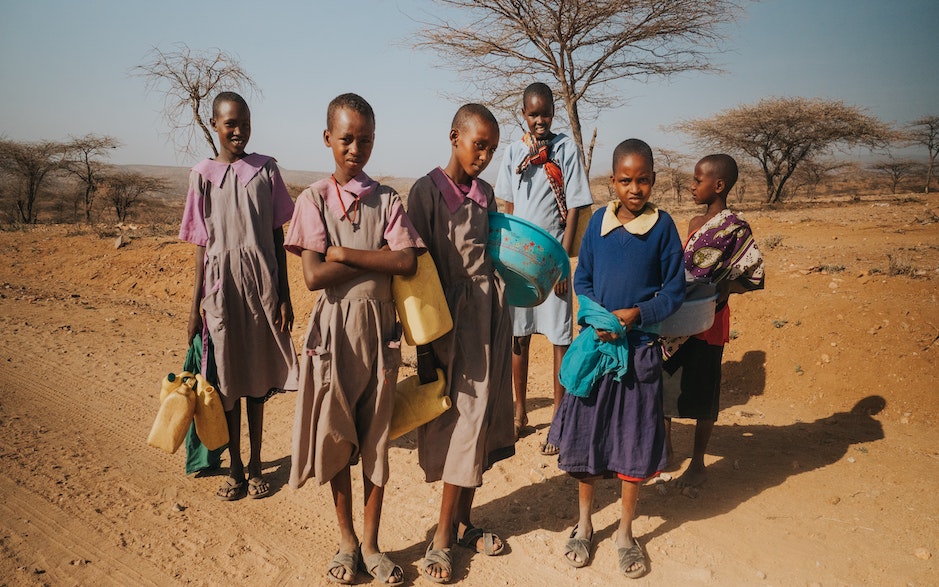Successfully sending volunteers abroad for 10 years
August is the month when the U.S. recognises Water Quality Month. This is particularly poignant in relation to the work that goes on in many parts of Africa. Due to poverty, access to clean water in many parts of Africa is hard to source. Did you know that almost one billion people do not have access to clean, safe water? That figure is the equivalent to 1 in 8 people on the entire planet!
Thinking closer to home, it is important that we respect the privilege of clean, safe water that we often take for granted; after all, water is what sustains all life and complete ecosystems rely on it for their existence.
Taking the time to recognise, learn and share information about Water Quality Month is a positive way of reminding us all to take a moment and consider how we can help fight against pollution and help to keep water as fresh as we can. Seeing how people struggle on a daily basis in parts of Africa should be enough to make anyone stand up and want to help the cause, especially when fresh, clean water is accepted as a given by most in First World countries. If you are embarking on one of the many international volunteering programmes on offer then you will be able to take away the knowledge you have and appreciate how fortunate countries such as the U.K. and the U.S. are when it comes to the quality of water.
A Brief History of Water Quality Month
Between 2005 and 10215, The United Nations has declared an International Decade for Action, entitled “Water for Life”. This was to emphasise the essential nature that water quality holds because of its relation to many things that we wouldn’t always associate with it, including; human rights, sustainability, sanitation, geography and urbanisation.
This was a poignant period because being able to emphasise the close-knit, interlinked nature of our water systems is vital and the National Audubon Society – a U.S.-based non-profit environmental organisation dedicated to conservation – has already previously highlighted the dangers of runoff from construction, agriculture, forestry, and personal dwellings.
A spokesperson for the organisation stated that: “Each household may not produce enough pollution to force a beach closing or cause a fish kill, but the combined output of all the homes in a community can be severe. And, consider that about half of the U.S. population lives within 50 miles of a coastline where runoff flows quickly to the ocean. This is why watershed protection — attention not only to the body of water but the area that drains into it — is important.”
What Are Some of The Other Main Types of Water Pollution?
Some of the most renowned sources of water pollution aside from the ones we have just mentioned include:
· Global warming
· Sewer water
· Mining
· Landfill leakage
· Marine dumping
· Accidental oil leaks/spills
How Can You Celebrate Water Quality Month and Make a Difference?
The big question we can ask ourselves is, what can we, our friend and family do to help prevent water pollution from our homes; not only during Water Quality Month but on a regular basis?
Below is a handy list of things that we can all do:
· Fix any known leaks that drop from your car.
· Consider placing a liner in your driveways to collect oil and other harmful materials.
· Avoid the use of chemical fertilisers and pesticides. Try to use organic options wherever possible.
· Buy non-toxic household products wherever this is possible.
· Avoid using antibacterial cleaning products and/or soaps. While many companies are updating their ingredients, there are still lots of antibacterial soaps that contain a registered pesticide that is known to harm marine life, named Triclosan.
· Do not flush medications that are past their use-by-date or are unwanted down the toilet or drain.
· Do not throw anything other than water down the drains in the street; they connect to the local waterways.
· If you live in a house that has a private well, ensure it’s cleaned and tested on a regular basis. There’s a large possibility that bacteria are built up in the well if left unattended.
· Try to keep the amount water you use to a minimum.
If you would like to visit Africa and help to make a difference in the lives of some of the most disadvantaged people in the world, then you can visit our programmes page to find out which adventures would suit you best.
Other Thoughts
We've always got plenty going on, so why not check out some of our other latest news and thoughts? Or perhaps you're ready to gt stuck in yourself? If so, Apply Now to get in touch with one of our specialist trip advisors.

